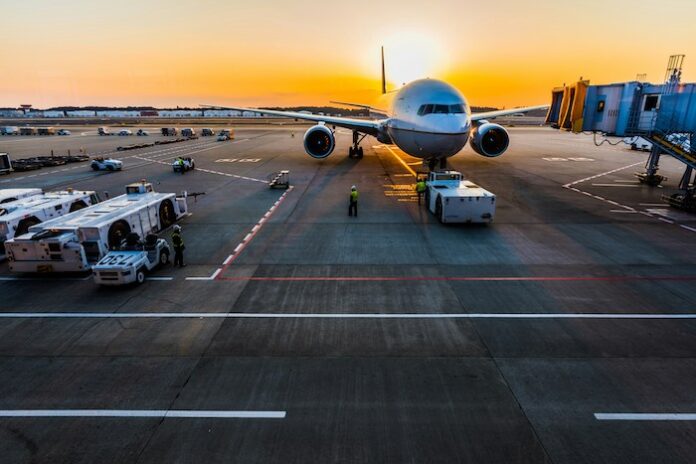
The current government shutdown is creating widespread disruptions for business travelers, from longer security lines and delayed flights to limited customer service responses. Understanding how these interruptions affect air travel is essential, especially since they stem from reduced staffing at agencies like the TSA and Federal Aviation Administration (FAA). Equally important is knowing your rights as a passenger, including what airlines are required to do in cases of cancellations or delays, when you’re entitled to a refund, and what protections are available to you.
As the Chief Information Officer at SlickTrip (a leading flight price drop website), I’ve seen firsthand how crucial it is for business travelers to understand how to navigate the current flight chaos. Below is what to know about how government shutdowns impact flights, the rules surrounding refunds and compensation, and practical tips on navigating these challenges with confidence.
How the Government Shutdown Affects Air Travel
The current government shutdown has caused major disruptions to air travel, which affects both domestic and international passengers. Air traffic control and TSA operations are particularly strained, as many employees are working without pay. This has led to staffing shortages, longer security lines, and more frequent flight delays. In some cases, reduced air traffic control staffing has even resulted in cancellations or slower operations to ensure passenger safety.
The FAA is also impacted, as many administrative and technical operations have been paused. Delays in approving flight plans, certifying aircraft, and authorizing new routes has created schedule disruptions, while postponed maintenance inspections are adding further uncertainty for airlines and business travel. International travelers face additional challenges, including slower passport and visa processing and longer waits at customs and border checkpoints.
Overall, the current government shutdown is affecting nearly every stage of air travel, from airport security to flight operations and international entry. This makes it more important than ever for travelers to plan ahead and stay informed.
Understanding Your Rights as a Passenger
When flights are delayed or canceled during a government shutdown, it’s vital for travelers to understand their rights under U.S. Department of Transportation (DOT) regulations. Airlines are required to uphold certain obligations to passengers, but those responsibilities can vary depending on the cause of the disruption. If a delay or cancellation is directly caused by the airline (such as mechanical issues, crew scheduling, or other internal problems), passengers are generally entitled to specific remedies. This includes refunds or rebooking options.
However, when disruptions are the result of government operations, such as TSA staffing shortages or FAA slowdowns during a shutdown, the situation is more complex. Airlines may not be held fully responsible for those delays, but they are still expected to communicate clearly with passengers about schedule changes and available options.
It is also essential for travelers to understand refund and rebooking policies. Under DOT rules, passengers are entitled to a full refund if their flight is canceled and they choose not to travel, even if the reason is outside of the airline’s control. This also applies if a significant delay makes the trip no longer worthwhile, though what qualifies as “significant” can vary by airline. For those who still wish to travel, most airlines offer rebooking options at no extra cost, or the choice to receive travel credits or vouchers for future use. Travelers should carefully read the terms associated with these options, as some credits may expire or come with restrictions.
On the other hand, compensation policies depend largely on airline discretion. While refunds are legally required in certain situations, additional compensation (such as hotel stays and meal vouchers) is typically voluntary. Some airlines may provide these as a gesture of goodwill or to maintain customer satisfaction, especially during widespread disruptions. However, others may not, particularly if the delay or cancellation stems from factors outside their control (such as a government shutdown). For that reason, travelers should review each airline’s customer service plan and prepare to advocate for themselves to receive any available assistance.
What the Government Shutdown Means for Refund Processing
During a government shutdown, refund processing and handling complaints can slow down considerably due to the reduced staffing at federal agencies. DOT, which oversees airline consumer protections, typically operates with limited personnel during these periods. As a result, travelers may experience longer wait times when filing complaints or requesting refunds, and the resolution of pending cases can be delayed. Airlines themselves may also face backlogs, especially if they coordinate with government offices for compliance or oversight.
These delays can be frustrating for passengers seeking timely resolutions, particularly when dealing with canceled flights or unfulfilled refund requests. However, despite these challenges, travelers still have the right to submit refund requests and complaints. It’s important to do this as soon as possible to establish a record of the issue. Passengers can file a refund claim directly with the airline through its website or customer service department, keeping copies of all correspondence, receipts, and booking confirmations.
If the airline fails to respond or provide a satisfactory resolution, travelers can escalate the matter to the DOT by submitting a complaint through the agency’s official online form. The DOT’s website also provides updated contact information and resources to help passengers understand their rights and the complaint process. While responses may take longer during a shutdown, persistence and thorough documentation can help ensure travelers eventually receive the compensation or refund they are owed.
Tips for Travelers During a Government Shutdown
Travelers can take several proactive steps to minimize stress and disruptions during a government shutdown:
Plan Ahead to Reduce Stress
Planning ahead is essential, as airports may experience longer lines at security checkpoints due to reduced TSA staffing. Flight schedules can also change unexpectedly. Arriving early and allowing extra time for security and check-in can help prevent missed flights. In addition, monitoring the status of flights frequently (through airline apps, websites, or airport notifications) will ensure travelers stay informed about delays, cancellations, or gate changes.
Document Everything for Claims
Keeping a thorough documentation is another important strategy. Passengers should save all receipts, emails, and notices from airlines, as this information may be necessary when filing refund requests or complaints. Proper records can also help clarify what compensation or rebooking options are available. This makes it easier for travelers to advocate for themselves in the event of a flight disruption.
Review Travel Insurance Policies
Travel insurance may offer additional protection, though travelers should carefully review policy details to understand what is and is not covered. Some plans may provide compensation for delays or cancellations caused by factors outside of the airline’s control, while others specifically exclude disruptions related to government shutdowns. Understanding these limitations beforehand can prevent unpleasant surprises.
Stay Informed with Reliable Sources
Finally, staying informed is critical. Following official updates from the DOT, TSA, and airlines can help travelers anticipate changes and adjust plans accordingly. Subscribing to alerts, checking official websites, and staying aware of news about the shutdown’s impact on air travel can provide valuable real-time information and reduce uncertainty during an already stressful travel period.
FAQs
Here are several frequently asked questions travelers have about navigating travel insurance, airport operations, and passenger rights during a government shutdown:
What should I know about travel insurance during a government shutdown?
Travelers often wonder how a government shutdown affects their plans, particularly when it comes to travel insurance. Coverage can vary widely depending on the policy. Some travel insurance plans may reimburse for delays or cancellations caused by events outside the airline’s control. However, many specifically exclude government-related disruptions. So it is essential to carefully read the policy details before purchasing insurance to understand what is covered and to avoid unexpected gaps in protection.
Will TSA or customs operations shut down entirely during the government shutdown?
Another common concern is whether TSA or customs operations will shut down entirely during a government shutdown. While essential personnel generally continue working, staffing levels may be reduced, which can result in longer security lines, slower processing times, and occasional operational slowdowns. Complete shutdowns of TSA or customs are extremely rare, but travelers should be prepared for delays and plan extra time for airport security and border processing.
Will I be compensated for missed connections caused by the government shutdown?
Passengers also often wonder if they can receive compensation for missed connections caused by federal slowdowns. In general, airlines are not required to provide additional compensation when delays are due to factors outside their control, such as reduced government operations. However, passengers may still be eligible for refunds if a flight is canceled or significantly delayed. Some airlines may also voluntarily offer accommodations, meal vouchers, or rebooking options as a gesture of goodwill. Understanding these nuances can help travelers manage expectations and make informed decisions when disruptions occur.
Preparation is Key During Flight Chaos
The government shutdown is creating significant challenges for travelers, as it has affected airport security, air traffic control, and customs processing. While airlines have obligations, delays and cancellations caused by reduced government staffing often fall outside their control. Understanding your rights, including eligibility for refunds and rebooking, is essential. Minimize stress by planning ahead, keeping documentation, reviewing travel insurance, and staying informed through official channels. By knowing what to expect, travelers can protect themselves and travel with greater confidence even amid federal uncertainty.
Find a Home-Based Business to Start-Up >>> Hundreds of Business Listings.
















































